High school graduates in a pre-army volunteer program set up by Erel Margalit find themselves in a unique wartime position of supporting Israel’s children.
In Israel, it’s a popular choice for teens graduating high school to spend a year volunteering before starting their army or national service. What’s not common, however, is to have war break out weeks after your program begins.
But this was the reality for many shin shinim, as these gap-year young adults are called, including 60 enrolled in a program with Bakehila (In the Community), an educational nonprofit serving schoolchildren from Jewish and Arab backgrounds.
“When the war broke out, we were home for the weekend for the holidays,” recounts Ophir Barnay, who started out the year at a Bakehila commune in the now-evacuated northern city of Kiryat Shmona.
The group was evacuated to Haifa, where they were deployed for three weeks in a makeshift day camp for children of healthcare workers at a time when schools were closed.

“Then we spent another two weeks in Haifa volunteering in a hotel housing evacuees, doing activities with the kids. It was a lot of fun that the kids were happy, despite their reality changing for the worse,” he tells ISRAEL21c.
“Then, we traveled to Eilat, where we spent two very intensive weeks. The first week, we built a school for the evacuees – sorting out books, chairs, tables and so on. On the second week, the school opened, and we were there to accompany the children in this process.”
In the evenings, they led crafts and sports for evacuated youth at the hotels. “To this day, we’re in touch with the kids there,” says Barnay.
Someone is there for them
From Eilat, Barnay and his commune traveled to Tiberias, the city hosting the largest number of evacuees from Kiryat Shmona, where he and his colleagues were meant to volunteer in the first place.
Volunteering in a school for evacuated children, each is assigned a group of around five kids who’ve been identified by teachers as needing extra personal attention and mentoring, whether socially, emotionally or academically.
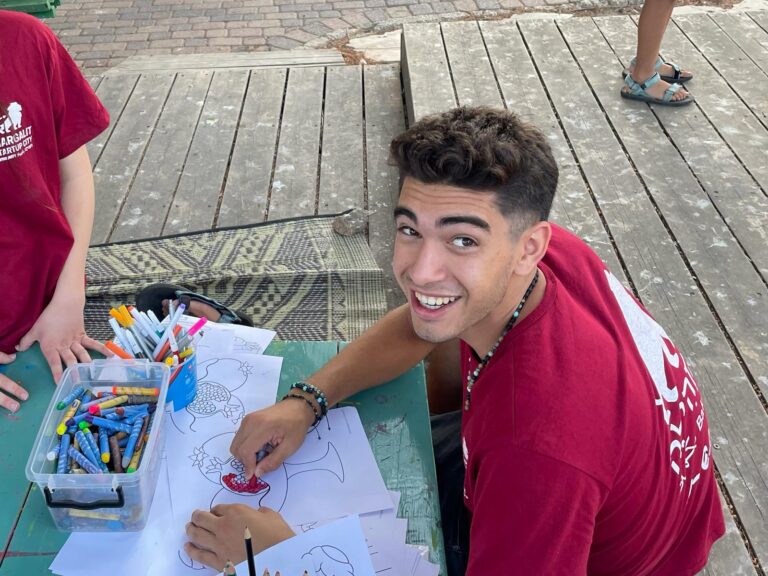
After school, the shin shinim staff an open space for teen evacuees.
“We want them to see that there’s someone there for them, who’s interested in hearing what they have to say,” Barnay explains.
The small age difference between him and the teens, he adds, is an advantage.
“I’m not there to fix them or anything like that. I’m there to be some kind of older brother, who can perhaps give them a different perspective or a viewpoint they hadn’t previously encountered.”
Back to a positive life
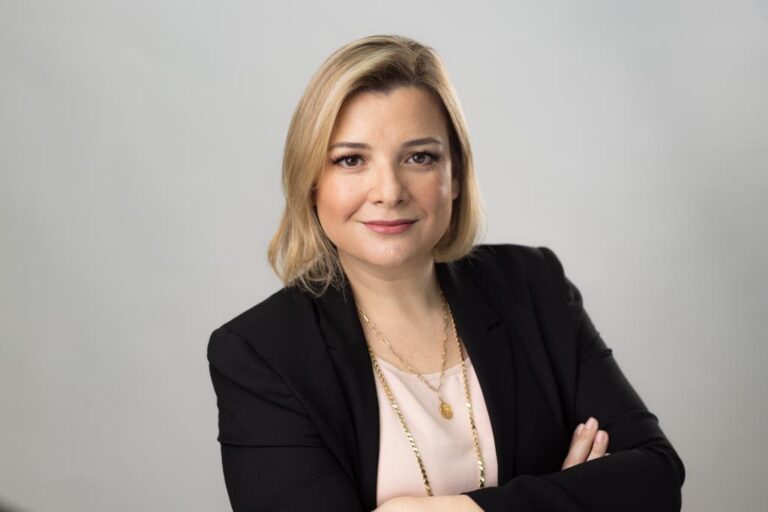
Bakehila’s leadership pushed for the establishment of youth clubs in evacuee hotels.
“We understood that beyond the 150,000 evacuees in Israel, there was another population that required attention. Israel’s children are experiencing uncertainty, lack of confidence and difficulty, and they needed to go back to an ordered, positive daily life,” notes Bakehila CEO Elinoar Levitan.
“Some teens are really not finding themselves and aren’t managing to go to their temporary schools or to schools where they don’t know anyone. Risky behaviors such as wandering, drinking, violence and smoking are now all exacerbated because of the pressure,” says Levitan.
“In our work with the authorities, we understood that we need to establish centers across the hotels where evacuees are staying, and our shin shinim opened these youth clubs there out of the realization that teenagers will feel more comfortable speaking with an 18-year-old than an adult. We’re always thinking where we can be of significant help.”
An opportunity to contribute
Meanwhile, in the Bakehila communes in Jerusalem, shin shinim are mentoring kids who might still be living in their own homes, but whose lives have changed since October 7.
“I work with a very specific population of kids who have stigmas regarding parts of Israeli society, and who are themselves stigmatized by society, but when the war broke out a lot of different people connected and wanted to contribute,” says Alma Crane, a member of Bakehila’s commune in Jerusalem’s Har Homa neighborhood. “There was this connection between different parts of society that weren’t perhaps in touch beforehand.”
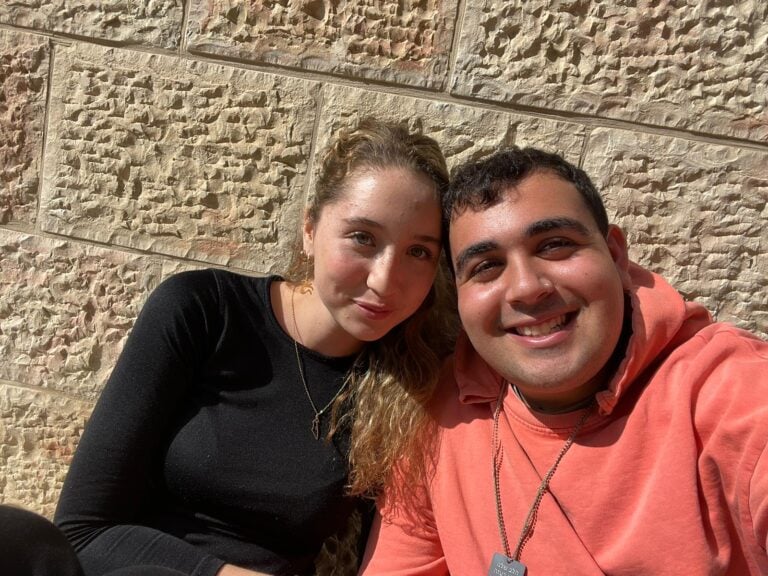
In regular times, Bakehila operates a Birthday Angels project for children. During the war, more than 250 birthday parties have been organized for evacuated kids in the city.
Crane involved her 14-year-old proteges in this project, giving them a more constructive and less helpless way of contributing during the war.
“They’re eighth graders who see the news, and who are terribly scared, and here they have this opportunity to be on the giving and contributing side, and it’s amazing to see what it brings out in them.”
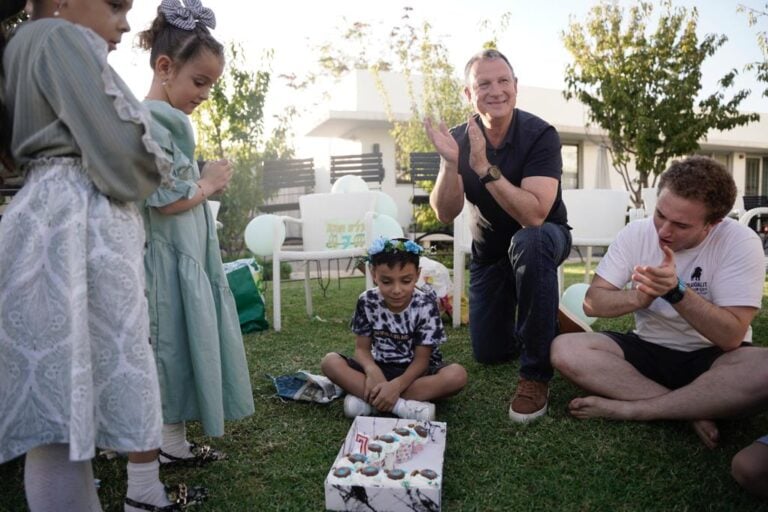
Crane’s friend from the neighboring Kiryat Menachem commune in Jerusalem, Eyal Lifshitz, concurs.
“You can really feel the kids’ anxiety and fright, and our presence really highlights how much they need this stable thing to lean on, because their routine was completely shaken up,” he notes.
“I volunteer at an elementary school, and with the sixth graders we did this project of sending food to soldiers. Each of the kids wrote a card for the soldiers. It quieted their fears and enabled them to help those helping them,” he adds.
Like a bubble
As recent high school graduates, the shin shinim are experiencing the war from a unique position – they remain civilians at a time when most of their friends are already serving in the army.
“I have so many friends in the army, or friends whose friends are already in the army. Some of my friends really experienced the war, for example when someone from their family died, and it makes you cognizant of the situation the whole time,” Crane says.
“Our gap year feels like a bubble, because we’re in this wartime reality which so many of our friends are experiencing, and we’re detached from it. That raises difficulties,” she admits.
“But I understood that this gap year is what enables me to make the most out of this reality. I have kids who need someone they can lean on, who believes in them, and this complicated reality makes their need even more present,” she says.
“There’s something confusing about finishing high school a moment ago and already being an authoritative adult figure, and having all of our friends in the army and the war messing things up, and suddenly there’s all these kids looking at you and how you’re handling things,” she adds. “But it’s also very empowering to be able to see myself through their eyes.”
All three shin shinim emphasize that Bakehila is providing them with the tools and support to face these difficult times.
“We have a commune mentor whose full-time job is to be with us,” says Barnay. “She’s a counselor through and through, and I consult with her about everything that’s happening either in my private life or in my professional gap-year life.”
Stepping forward
Jerusalem Venture Partners founder Erel Margalit, who established Bakehila with his wife Debbie in their hometown of Jerusalem back in 2002, is full of praise for the complicated work of the shin shinim.
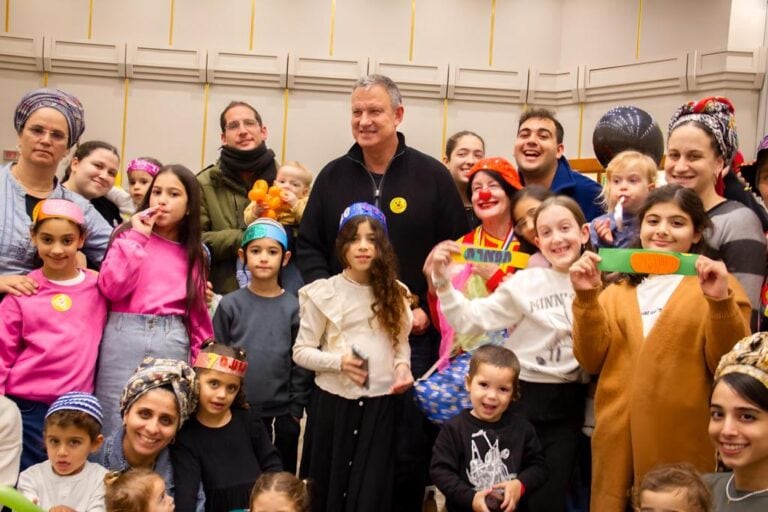
“These are the people who are stepping forward at the most challenging time for many of the kids,” he says.
“The stand that we took as social entrepreneurs, and the same goes for JVP, is to take care of each other and move forward. This is the time people needed us the most. This is a time when having a big brother or a big sister in a shin shin is precious more than ever, because the reality of the kid has changed,” he adds.
“Bakehila has a major role, like JVP, in pushing for the day after. Pushing for investments, for investing in the kids, for normalcy, for life, for the kinds of things you did earlier, and even though it’s going to feel different in various places, that’s our role. To hold their hands as they go back to the communities and schools,” Margalit tells ISRAEL21c.
“The volunteers of Bakehila are the social leaders in their neighborhoods, with small deeds showing the way, every day, and we need many more people like that.”
Last year, Bakhila also ran the first cohort of its gap year for young Arab adults in East Jerusalem that aimed to supply participants with entrepreneurial toolkits to strengthen innovation, volunteering in the community and access to Israel’s high-tech ecosystem. A second cohort was scheduled to begin in November, but after war broke out in October budgets were frozen.
Bakehila is seeking ways to overcome this, and in the meanwhile Margalit tries to highlight the cooperation existing in Jerusalem and elsewhere in the country.
“What’s missed and ignored is how many Israelis and Palestinians have mutual respect for each other, even in these very difficult times, and the commitment to life that exists on both sides,” he notes. “Belief in continuing to cooperate is going to be at the heart of the day after, of the rebuilding of trust and lives that I think we’re all committed to.”
Originally posted at israel21c.org
